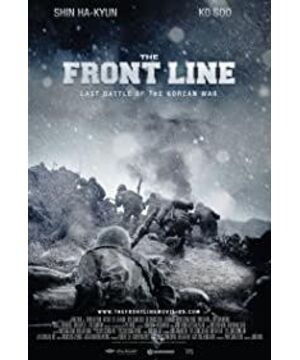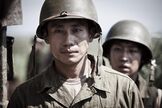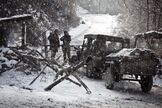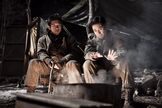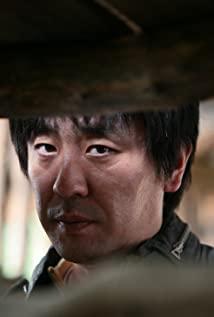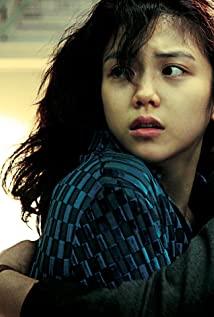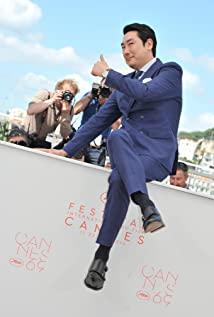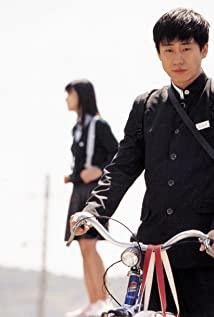Rating: 3.5/5 Author: Seongyong Cho Translation: Peprika
Unless it ends quickly, there will be a stalemate in the war. Soldiers on both sides of the war are wondering whether they can survive this prolonged war; they are getting tired day by day, but as long as they stay on the battlefield for one more day, they need to endure the pain of the war. Even so, every time the charge horn sounds, they still have no choice but to do what their survival instinct drives them to do, and continue to add scars and pain to their hearts.
The Korean movie "Highland War" depicts the last chapter of the Korean War. Although it is not as worthy of a special book as other battles, the frustration expressed through the film swept the people on both sides of the war. On June 25, 1950, North Korea invaded South Korea. The North Koreans were confident that they would dominate the Korean peninsula in a short period of time, but they were defeated and retreated to the border between China and North Korea due to the rapid counterattacks from South Korea and the United States. In January 1951, China announced its participation in the war, and the Allied forces were forced to retreat south and began to organize counterattacks. In the end, the war drew the 38th line as before, and the two sides entered a stalemate.
This situation lasted for more than two years, until the two sides signed an armistice agreement in July 1053. Ironically, on one side, senior generals are negotiating in Panmunjom, and on the other side, the two sides of North Korea and South Korea are still fighting for the territory. In a scene in the film, just as the leaders of the two sides are finally about to reach an agreement, the soldiers suddenly receive an order that the military demarcation line has not yet reached the final verdict, and another battle is about to begin...
This situation can be summed up by a dim, slightly humorous montage in the movie. On the first day, North Korean soldiers swarmed up and took down Shantou. On the second day, South Korean soldiers robbed Shantou again. This happened again and again, and it had been repeated countless times. Even in the movie, a character told his friends that they no longer know how many times they have taken over this hill that is more and more like a mound. When they dig the soil to bury the corpse, they can meet the corpse they have buried before.
The name of this hill is Aerok Hill. The crocodile company belonging to the South Korean army has been fighting here for a long time. The soldiers have been praised for their bravery, but they have recently been suspected by the counterintelligence department. The company commander died suspiciously in a battle. He was shot by a bullet from his company. At the same time, someone in the company was helping North Korean soldiers to send letters to their families in South Korea.
Lieutenant Eunbiao (played by Shin Ha Kyun) who works in the counterintelligence department is assigned to investigate this incident secretly. Although Eunbiao was very happy to learn that his old comrade Soo Hyuk (Gao Jiao) who was captured with him in the past was still alive, he still noticed something strange in the soldiers of the Crocodile Company. The company is led by a young captain Nihyoung (played by Li Dixun), who is even much younger than his soldiers. Although the actual leader is Suhyuk, he and the other members of the company respect the leadership of Japan and Britain, and Japan and Britain did show his courage and sufficient experience. In the friendship of comrades in arms, there seemed to be things that he did not want to talk about publicly. Could their secrets have something to do with the sacrifice of their former commander?
In the first third of the film, the audience discovered that the so-called McGeffen had brought himself into something deeper than the "murder mystery". The so-called secrets in the film were revealed earlier than we expected, and gave us a deep understanding of the extraordinary human condition during the war. Soldiers on both sides of the war will fight desperately when necessary, but even in the case of continued conflict, they unknowingly form a complex relationship that can only occur during a war. After experiencing countless merciless violence, the remaining humanity is enough for them to indirectly express a little kindness to each other-but of course they will not forget their responsibilities as soldiers.
The script of the film was written by Park Sang-yeon, and his novel "DMZ" was adapted into the movie "Common Security Zone" by Park Chan-wook. The film also tells the unlikely relationship between South Korean and North Korean soldiers during the Panmunjom peace talks, but in this film, the story is gentler and more sentimental—probably because of North Korea and South Korea in the past 62 years. Have learned a way to coexist under contradictions and conflicts. In 2010, we had a headache because of the Korean Peninsula issue, but as usual, although the tensions increased significantly, it was not that worrying, even after the death of Kim Jong-il in December last year.
Zhang Xun, who was an assistant director in the Kim Kidd movie "Bow", made this solid war film. The war scenes in the film are handled very well, dirty, bloody, chaotic, exhausted, and vigorous, these elements are mixed together. The film begins with a flash lens and handheld photography, giving people a sense of loss in the familiar battlefield like "Saving Private Ryan". Then there is a smooth battle scene, the camera moves under the director's confident command, as if we have been on the battlefield and are accustomed to the characters around us. Zhang Xun did not lose his humanity in many conflicts and explosions, and it was extremely difficult for the soldiers to take a step forward.
The performances of the leading actors Shin Ha Kyun and Gao Xiu complement each other, although they are performing typical male-dominated predictable plots. When I saw the cute orphans in the war hovering around the company soldiers, I knew that there would be an instant that would make at least one of them cry.
The best thing about their neutral performance is that they leave a lot of space for talented supporting roles. We are very happy to see reliable old Korean film supporting roles like Yoo Seung-soo, Ko Chang-seok, and Yoo Seung-ryong, as well as young new actors like Lee Di-hoon and Lee David (Lee Cangdong’s "Poetry", Meizi's reckless grandson). When they form a company in the movie, it is easy to establish a chemical reaction. When the audience first saw this company, they accepted their entire existence as a brother company from the bottom of their hearts.
Although we have been accustomed to these standard characters in war movies, an old man who often talks about past combat experiences, a young soldier who has never participated in a battle, a soldier frightened by artillery shells, a soldier who misses his family, a An incompetent commander who doesn't care about complaining to his subordinates, and so on, but the actors turn these clichés into a story with warmth and tension. As the plot develops, the "secrets" in the story seem to be less important, replaced by the company's daily battles. In fact, you can think of them as characters in some epic TV miniseries, a bit like Robert Altman's "Army Field Hospital".
All supporting actors performed very well. Li Dixun, who played the tragic bully in "Watchmen", successfully played the role of a captain who concealed facts in this film and gave a satisfactory performance. As the flashback footage in the film reveals, what he did is terrible, but who can blame him for doing so? Survival is the number one priority in war. He just did things that could save others and himself—though not everyone. Gao Changxi, who performed well in Zhang Xun's first two films, once again stole the limelight of other characters with a veteran character who regards war as part of his life in this film. Liu Chenglong and other actors brought the human side of North Korean officers and soldiers to the audience. Jin Yubin is also the only female character in the movie (do you remember that she is the heroine in Park Chan-wook's "Bat").
Despite its many advantages, the handling of the third act of "Highland War" is not good, and it is long and preaching. Nevertheless, this flaw did not affect our perception of this movie. When the film progressed to 12 hours before the armistice agreement came into effect, the soldiers had to go to the front line to fight for territory. Compared with the first 90 minutes, the pace of this part was obviously delayed. Several Korean film critics pointed out that if the third act were cut for about 20 minutes, the effect would be much better.
"Highland Battle" is a work submitted by South Korea to the Oscar for Best Foreign Language Film this year. Admittedly, this is a good choice, but considering that there are even more outstanding "Bat" and "Yellow Sea" released in 2011, I don't think "Highland War" is the best choice. When I reviewed this movie again, I felt its versatility as a war movie. Technically speaking, it is undoubtedly excellent, but from it I can also see what other war films have in common, which also makes "Highland War" look less unique. Like when I watched this movie for the first time in July last year, I once again expressed the feeling that the two male protagonists are the most boring characters in the film.
Despite its flaws and flaws, this movie is still worth watching, and I think it is the best Korean War movie of the past decade. War, of course, exists like hell, and this movie confirms this truth without exaggeration through the depiction of Korean war history.
View more about The Front Line reviews


